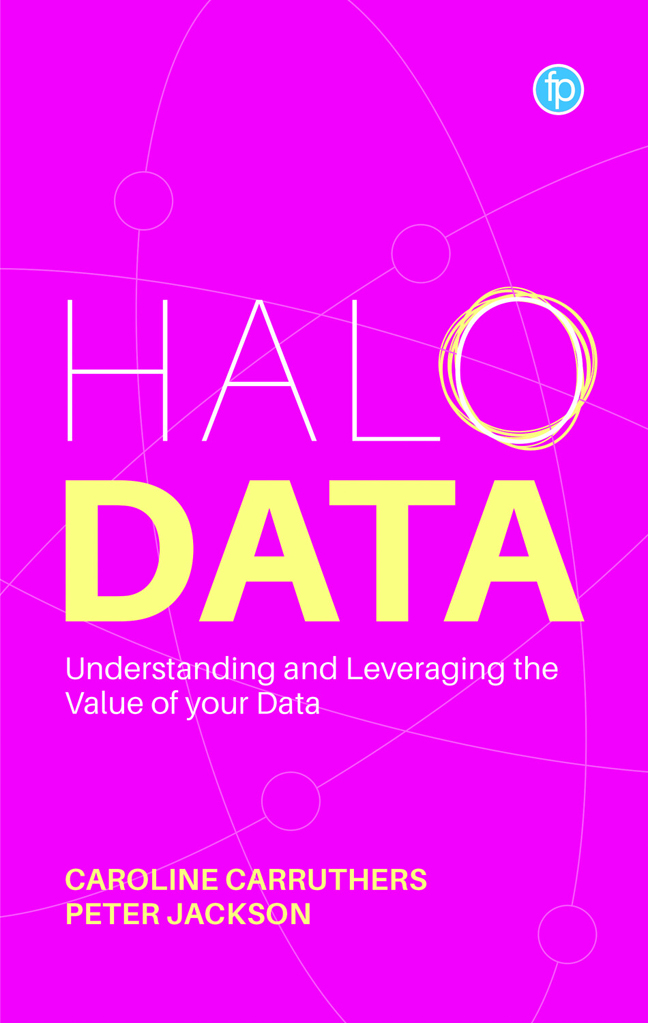Book contents
- Frontmatter
- Dedication
- Contents
- Figures and Tables
- About the Authors
- Acknowledgements
- Introduction
- 1 Who Owns the Definitions and Terms about Data?
- 2 What is Metadata?
- 3 Other Ideas of Data Value and Monetisation
- 4 Value from a Different Source
- 5 Hello Halo Data
- 6 Getting to Know Halo Data
- 7 Early Examples of Halo Data Approaches
- 8 Halo Data and Data Ethics
- 9 Halo Data Framework
- 10 Halo Data Applied Risk Assessment, Regulation, Customer, the Citizen
- 11 Halo Data and Storytelling
- Conclusion
- Index
7 - Early Examples of Halo Data Approaches
Published online by Cambridge University Press: 17 December 2023
- Frontmatter
- Dedication
- Contents
- Figures and Tables
- About the Authors
- Acknowledgements
- Introduction
- 1 Who Owns the Definitions and Terms about Data?
- 2 What is Metadata?
- 3 Other Ideas of Data Value and Monetisation
- 4 Value from a Different Source
- 5 Hello Halo Data
- 6 Getting to Know Halo Data
- 7 Early Examples of Halo Data Approaches
- 8 Halo Data and Data Ethics
- 9 Halo Data Framework
- 10 Halo Data Applied Risk Assessment, Regulation, Customer, the Citizen
- 11 Halo Data and Storytelling
- Conclusion
- Index
Summary
Why hasn't the paradigm shift happened before?
Before we look at a couple of examples, let's recap our paradigm shift on metadata. We now see metadata as a Halo around the CDE. The CDE is the nucleus; the quantum element attached to it, defines its purpose and the metadata in the Halo either adds value to the CDE or has the potential to add value. The data in the metadata Halo is assigned four values:
n – the distance of the data from the nucleus
v – the value that the metadata provides to CDE
p – the potential that the metadata has to provide value to the CDE
c – the level of confidence given to the metadata.
We are pushing the concept of metadata beyond the limits of the 1960s definition to demonstrate that metadata in its own right has the potential to deliver value to the business.
This all might seem obvious and straightforward: we’ve always had metadata and we’ve always had some concept that data provides value to the business. But have we really? How much value do organisations really put on the metadata that they already have, let alone that they might collect and use? Across the wider business it is likely very little; and also likely that they don't leverage the value locked up in the metadata.
We are only now starting to talk about data having value and demonstrating that value; the idea that the metadata could have a demonstrated value as well is lagging behind in our thinking.
There are a number of reasons why organisations are still stuck in the 1960s with the understanding about metadata.
1 There is a lack of creative thinking about metadata as a source of potential value. This was discussed in Chapter 2. Metadata has been viewed an unexciting chore that must be dealt with, with no obvious RoI but plenty of overheads, looked after by the technology teams.
2 Organisations have not been accustomed to searching for and ingesting new and different types of data that may or may not deliver value to their existing datasets.
3 Linked to the above, but a reason in its own right, is a fear of failure. Organisations aren't prepared to invest in a ‘data project’ if there is no clear RoI – and even more so if they can't show that it has already effectively been done somewhere else.
- Type
- Chapter
- Information
- Halo DataUnderstanding and Leveraging the Value of your Data, pp. 63 - 76Publisher: FacetPrint publication year: 2023

